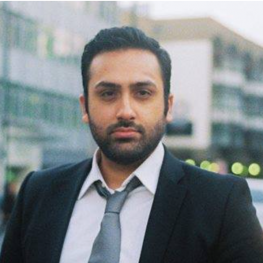Start
27 February 2018 - 12 h 30 min
End
27 February 2018 - 14 h 00 min
Address
30 Avenue Antoine Depage - 1050 Brussels (Room DC8.322 - 8th floor, Building D, Campus Solbosch of the Faculty of Psychology and Educational Sciences - Université Libre de Bruxelles) View mapCategories
Departement SeminarFrom the social networks to the sacred values of terrorist groups:
A social network and fMRI analysis of European jihadists
Terrorist networks are complex systems, much like ecosystems, which evolve based on changes at the sub-structural level. Changes in financing, battlefields, resources, policing, etc. create new opportunities and difficulties for terror networks which must adapt if they are to survive. In the past jihadist networks have adjusted to wars and policing efforts by changing profiles of recruits from mostly non-Western educated males to an increased number of Westerners, converts, women, and those living on the margins of society. Structurally, however, facilitators and middlemen continue to play crucial roles that determine the efficacy of these networks. Facilitators tend to be newer members, which allow them to go under the radar of policing. The fact that these structurally crucial members are new recruits is both a strength and weakness for jihadist networks. These new members often still have strong ties with non-radical friends and family members who are the greatest vector of influence over them. Our fMRI neuroimaging research on AQ supporters shows that sacred and non-sacred values are amenable to social influence when it comes to the use of violence. Thus the non-radical friends and family members of early stage radicals constitute “social anchors” that can be leveraged against the pull of jihadist networks.
——
Nafees Hamid is a research fellow at ARTIS International and an associate fellow at the International Centre for Combating Terrorism – The Hague. He is currently a visiting scholar at the Neuroimaging Unit at the Autonomous University of Barcelona. His research focuses on the psychology of radicalization as well as the rise of right-wing nationalism in Europe. As a field researcher he conducts ethnographic interviews, large-scale surveys, psychology field experiments, and neuroimaging studies. His primary field sites are within Western Europe and North Africa yet he works collaboratively with ARTIS’ expansive research network on various conflicts around the world. He has also worked closely with many European and MENA governments in the development of their prevention, deradicalization, and reintegration programs.


